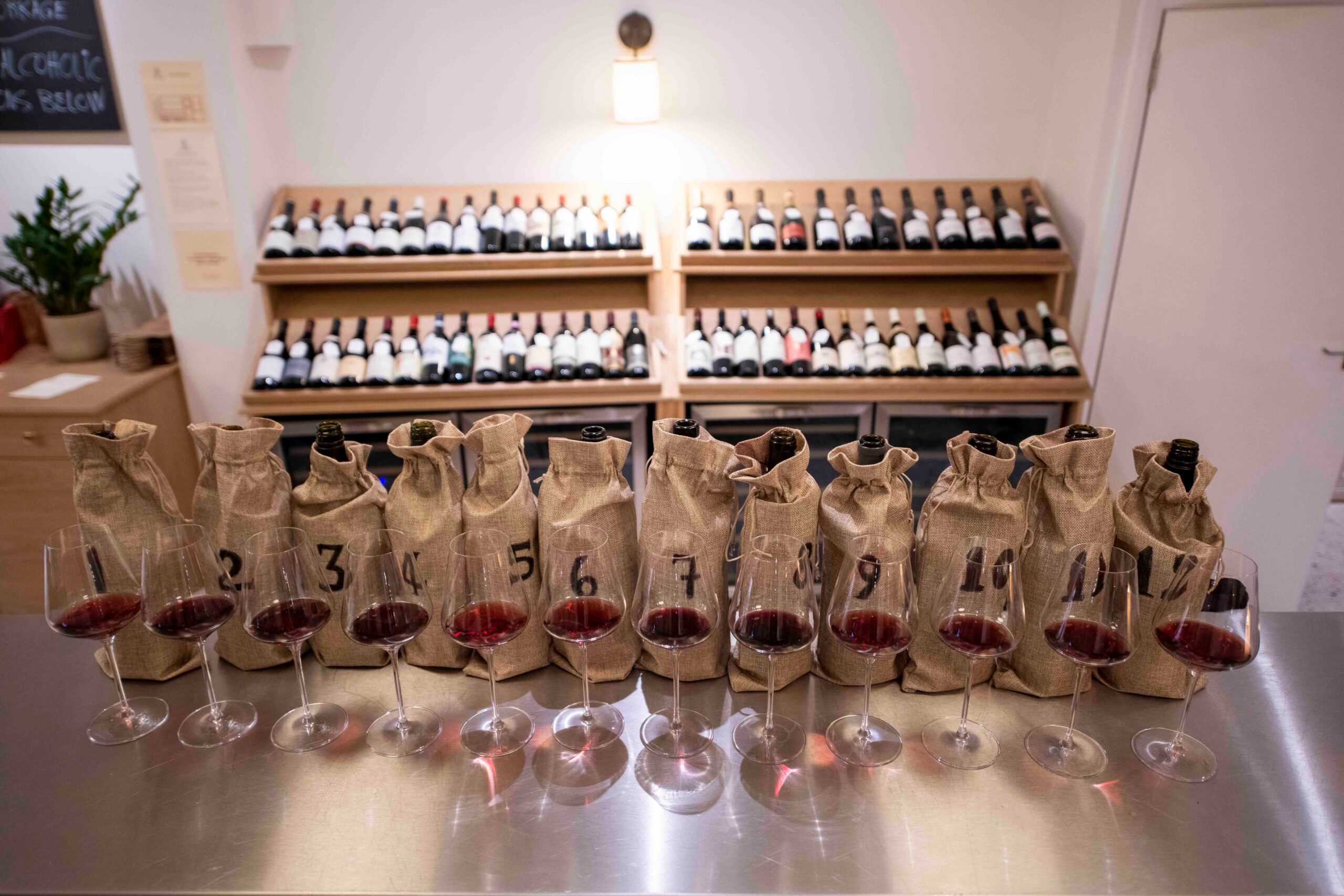If you’re buying for a restaurant wine list or an independent wine shop, Marasby’s 2020 panel tasting showed now is the time to consider English Pinot Noir as a solution to soaring Burgundy prices.
Join the 1%
Ninety nine per cent of the wine we drink in the UK is imported. That’s not normal for a wine producing region. In almost every other country around the world with its own wine industry, consumers overwhelmingly choose to drink home grown wines.
Of course, England is a unique case. Until very recently our climate was considered too cold and too wet by all but a small group of hardy, have-a-go, winemaking heroes. The tiny size of our industry meant it could be difficult and expensive to plant vineyards, to get hold of the latest winery equipment, and to attract the best viticultural and winemaking talent.
It made sense that most of us looked overseas for our wines.
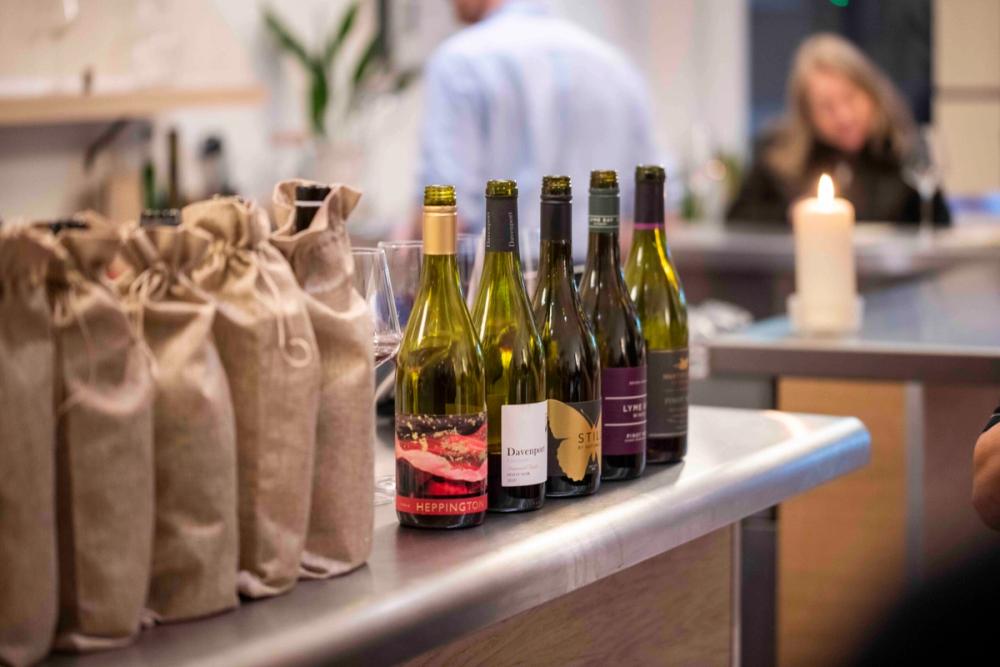
How would a selection of English Pinot Noir stand up to professional scrutiny from leading UK wine buyers and sommeliers
All that has changed. English sparkling wines are widely acknowledged as world class, and we have been very successful at getting the story of our chalky soils and Champagne-like climate out into the mainstream. Most restaurants, independent merchants, and even supermarkets now have a selection of English sparkling wines as part of their range. Its reputation around the world is growing. So much so that in England’s most important export markets in Scandinavia, young drinkers think English sparkling wines are “cool”.
Yet, behind the scenes, and until now largely overshadowed by the success of English sparkling wine, a revolution in England’s still wine quality has also been taking place. To demonstrate this, Marasby, [the new wine business Simon Huntingdon has set up with Talya Roberson to source and promote good local wine and produce] invited a panel of industry experts to blind-taste 12 English Pinot Noir wines from the excellent 2020 vintage.
The selection took in seven of the top scoring English Pinot Noirs on jancisrobinson.com, the Pinot Noir Trophy winner from last year’s WineGB awards, and several other of our favourites.
We weren’t just preaching to the converted. As well as a few English wine champions, we also invited Melania Battiston, head sommelier and buyer at Medlar, Shana Dilworth from Burgundy specialist Thorman Hunt and Jon Higgs, associate director at fine wine specialists, Chelsea Vintners.
Sommelier’s view
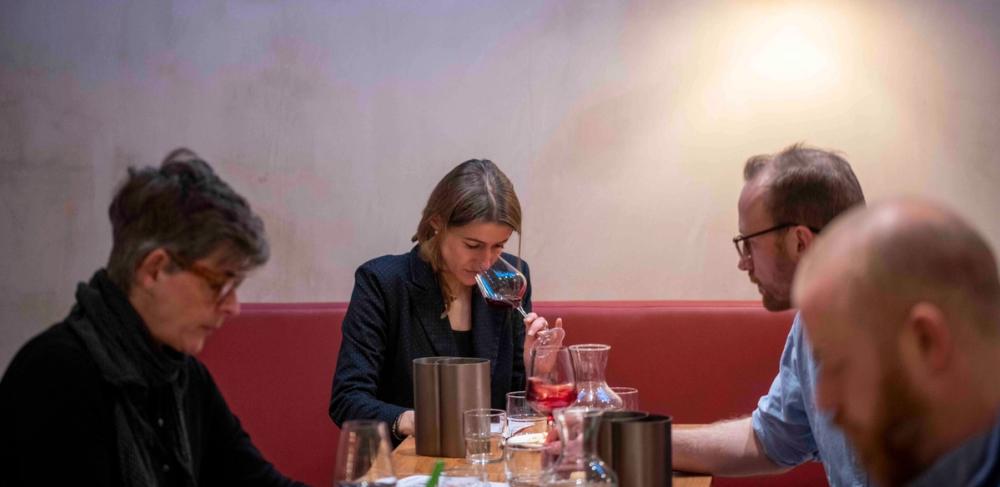
Melania Battiston from Medlar, centre, says she is looking for alternatives to Burgundy
Battison put the issue into context for us: “From the point of view of being a buyer, diners are looking for alternatives to Burgundy, which is becoming way too expensive.”
So, what did she think of the 12 English Pinot Noirs?
“I have never had the chance to taste so many English Pinots side by side. There are opportunities here, and I would definitely buy some wines for my list. They would fit the target for Medlar and we would definitely be able to sell them,” she said
That sounds very confident?
“I am confident,” she added. “These wines are at a price point where people can discover them, especially from people they trust.”
Trade perspective
So what about the other side of the equation? How does English Pinot Noir look from a trade sales point of view? Shana Dilworth, who represents two English wineries at Thorman Hunt, said: “There is definitely a great market out there for the wines. I think English Pinot has so much of a great possibility ahead.”
Doug Wregg of Les Caves de Pyrene, which now represents half a dozen UK wine producers, agreed: “At Les Caves de Pyrene, we’ve seen a transformation in interest in UK wines, and our sales have rocketed to around 25,000 – 30,000 bottles in the last 12 months.
“With the French natural wines we introduced to the UK, most people first came into contact with them via a passionate somm in a restaurant or wine bar, yet most of our English wine growth has come so far via the independent off -trade. So, there’s clearly still an opportunity for the on-trade to discover these wines and become part of the burgeoning scene.”
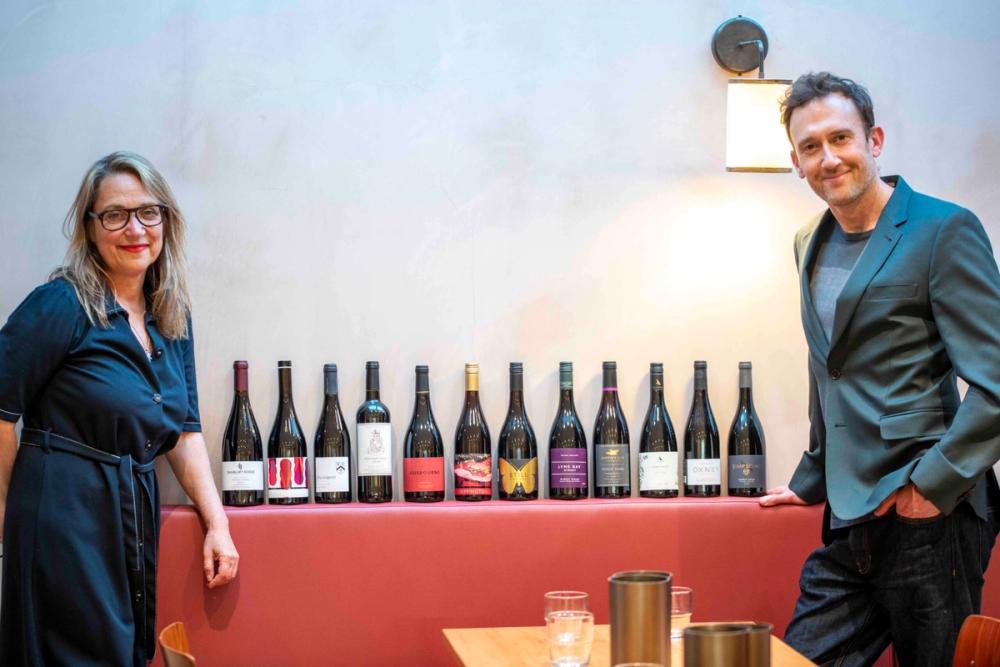
Talya Roberson and Simon Huntington, co-founders of Marasby, hand selected the English Pinot Noirs to taste – wines they believe also represent the focus on good quality, local wines and produce that Marasby wants to champion
Clay is key
But isn’t England all about chalky soils? We know that chalk is great for sparkling wines, and this message has been communicated brilliantly by our sparkling wine producers. So how then are our vineyards also producing such excellent still Pinot Noir? It turns out that clay might be key – and we’ve got plenty of that type of soil here too.
In particular, there is a type of bluish clay found in the south of Essex and north Kent – London Clay – that’s quite similar to the blue clay found in Pomerol at Petrus. This type of clay soaks up and radiates back heat in summer, yet forms deep cracks as it dries, aerating the soil and allowing vine roots to penetrate deeply.
It is probably no coincidence that many of England’s best Pinot Noirs, like those from Danbury Ridge, Lyme Bay and Martin’s Lane, come from vineyards in Essex’s Crouch Valley. Some others come from vineyards planted on a similar type of blue clay found between the North and South Downs in Sussex and Kent. These include examples from Davenport, Gusbourne, Oastbrook and Oxney.
Alongside our clay soils, our still wines have started to benefit from the knowhow of industry heavyweights, like Ruth and Charles from Simpsons Estate in Kent. They brought with them a decade of experience from their Domaine Sainte Rose estate in France, planting their English vineyards with Burgundian clones of Chardonnay and Pinot Noir specifically to make still wines.
So, we have the soil, the climate, and the winemaking talent, and both restaurant buyers and on-trade salespeople are positive about the potential for English Pinot Noir. Does that mean that our wines might displace Burgundy entirely?
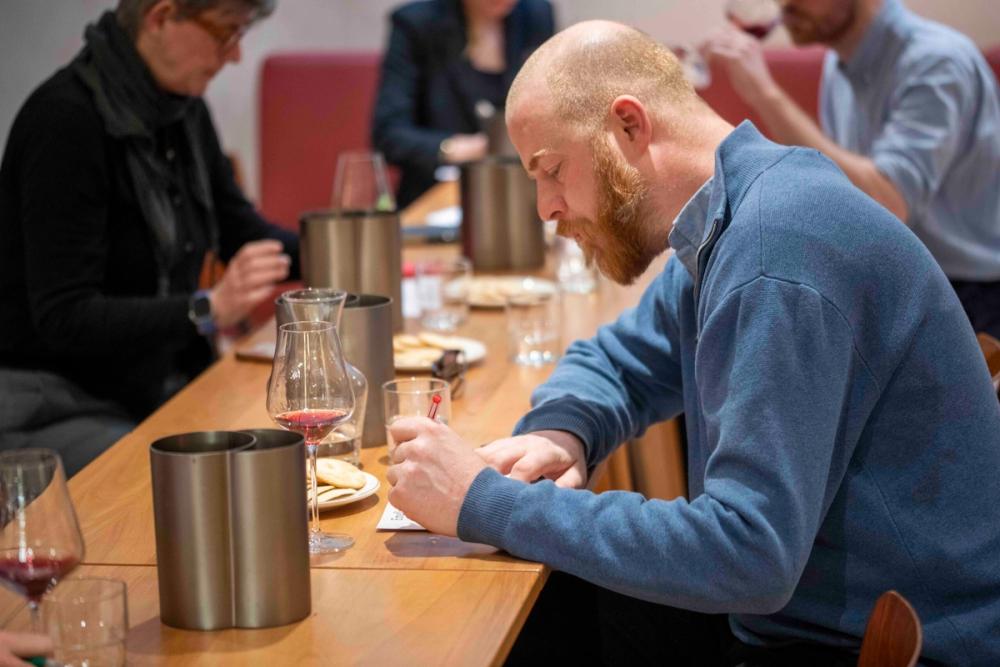
Chelsea Vintners’ John Higgs felt the jury was still out on the ageing potential of the English Pinot Noirs in the tasting line up
Jon Higgs of Chelsea Vintners strikes a word of caution: “Compared with Burgundy I don’t think any of these wines have any real longevity. Most collectors already have old wines in the cellar, so they’re looking for things they can put away, and I wouldn’t advise any of these for the long term.”
Does that mean that English Pinot Noirs won’t age at all?
“I mean cellaring for seven to 10 years or longer. There’s a few that I’d cellar for three to five years, but the rest I’d happily crack open right now – I’d certainly turn up for lunch with a bottle.”
Higgs knows his market, and I think it’s fair to say that few English Pinot Noir winemakers would confidently claim their wine is capable of ageing beyond the three to five years that he suggests. After all, the industry is so new that we have hardly any older examples with which to test the theory.
Yet for on-trade and independent off-trade buyers who want to find ready-to-drink wines at a price point that offers a compelling alternative to the soaring costs of red Burgundy, this shouldn’t be a problem.
It won’t necessarily be an easy like for like. There is still huge variation in the styles of English Pinot Noir being made, even amongst the 12 we presented to our panel. Several were much lighter, juicier and more mineral than a typical Burgundy. Others had a slightly funky ‘natural’ character. A few weightier examples definitely could be mistaken for Burgundies when tasted blind, as our tasters’ notes confirmed.
So, you might need to take some time to get to know English Pinot Noir better, and match styles to the preferences of your customers. Take a steer from Melania Battiston at Medlar, also in the heart of Chelsea, who says: “We have lots of regulars. We build a relationship with them, and they trust our recommendations, so I believe there is potential for these wines.”
In a country where 99% of the wines we drink are imported, we set up MARASBY to help grow the 1% who buy, drink, enjoy and talk about English wine. Isn’t it time you joined us?
- Marasby was set up by Simon Huntington and Talya Roberson as a platform for sustainable, high-quality UK produce, starting with wine. It will be launching an English wine and food magazine in March, and an English wine discovery subscription at the start of June. Visit marasby.com for winery profiles, tasting notes and British Delicious recipe suggestions.
